Education
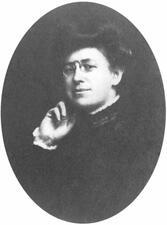
Pauline Perlmutter Steinem
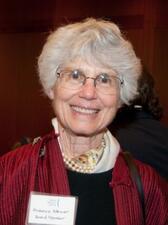
Prudence L. Steiner
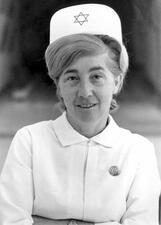
Judith Steiner-Freud
As a Holocaust survivor, Judith Steiner-Freud fulfilled her faithful and influential mission. From the 1940s to the 2010s, she devoted herself to the calling of transforming nursing into an academic profession, raising the status of Israeli nurses, and promoting the welfare of Israeli society and other diverse population groups.
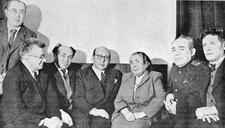
Lina Solomonovna Stern (Shtern)
Lina Shtern, biochemist and physician, was the first woman professor at the University of Geneva and the first woman named to the Soviet Academy of Sciences. Born in Latvia, then part of the Russian Empire, she returned to the Soviet Union out of political idealism. A member of the Jewish Anti-Fascist Committee during World War II, she was a victim of postwar repressions that targeted both scientists and Jews.
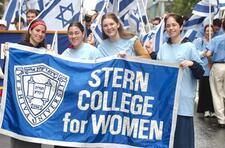
Stern College for Women
Founded in 1954, Stern College for Women of Yeshiva University is the longest-standing college in America for women under Jewish auspices. It has attracted young women from both Orthodox and non-Orthodox Jewish homes interested both in secular university training and high-level Jewish studies.
Bessie Cleveland Stern
Bessie Cleveland Stern is most recognized for her work as statistician for the Maryland Board of Education. She collected and interpreted data about the Maryland school system from 1921 through 1948, and school officials turned to her for information to support appropriations measures and proposed changes in state laws relating to the schools.
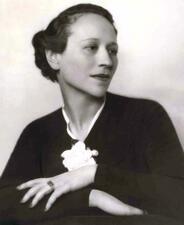
Edith Rosenwald Stern
Eva Michaelis Stern
Eva Michaelis Stern was co-founder and director of the fundraising arm of the Youth Aliyah in Germany, and later the director of the Youth Aliyah office in London. Over the course of WWII, she helped more than 1000 children from countries all over Europe immigrate to Palestine.
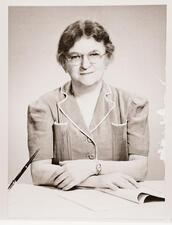
Frances Stern
Frances Stern’s experience as a second-generation American Jew dedicated to social reform and in contact with several prominent women engaged in social work led her to a career in scientific nutrition, applied dietetics, and home economics. Stern founded the Food Clinic of the Boston Dispensary, a center for dispensing practical advice on food and meal preparation for outpatients and their families that also served as a center for research on the relationships among health, nutrition, class, and ethnicity.
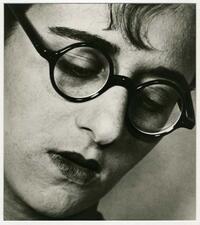
Grete Stern
Grete Stern was one of the founders of Argentina’s modern photography. After studying photography in bohemian Berlin and at the legendary Bauhaus School, Stern developed an unconventional approach to photography, including advertisement collages and studies with crystals, objects, and still-lifes. Between 1935 and 1981 Stern was an influential artistic presence in Argentina, known for her photographic work, graphic design, and teaching.
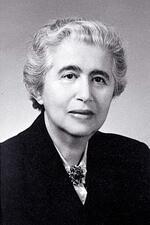
Selma Stern-Taeubler
Originally a historian and researcher in Heidelberg and Berlin, Selma Stern-Taeubler settled at the Hebrew Union College in Cincinatti after fleeing Nazi Germany. She became the first archivist of the American Jewish Archives at the college and later wrote books of fiction and nonfiction. Despite her contributions to Jewish history, American-Jewish academe has largely undervalued Stern-Taeubler’s work, which continued until her death in 1981.
Marion Stone
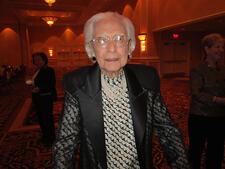
Sara Stone
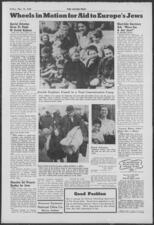
Celia Strakosch
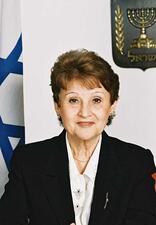
Tova Strasberg-Cohen
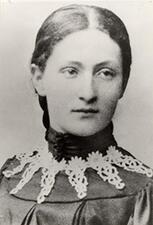
Rahel Straus
Rahel Goitein Straus, a pioneering woman medical doctor trained in Germany, was a model “New Jewish Woman” of the early-20th century. Successfully combining a career as a physician with marriage and motherhood, she committed herself to Jewish and feminist causes and organizations throughout her life, while also embracing Zionist ideals.
Lillian Laser Strauss
Lillian Laser Strauss performed pioneering work in public health and child welfare in Pennsylvania, became a lawyer at age fifty, and, in the midst of active legal advocacy for public health, died suddenly of a heart attack at age fifty-six.
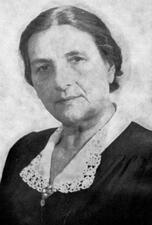
Hasya Sukenik-Feinsod
Hasya Sukenik Feinsod served as director of the Hebrew Kindergarten Teachers College. In 1919 Feinsod was appointed by the Education Committee to serve as superintendent of kindergartens in Jerusalem. She headed the Association of Kindergarten Teachers, and she was the first and only female representative on the Education Committee.
Rachel Hays Sulzberger
Rachel Hays Sulzberger maintained an active volunteer career in public service, in both Jewish and secular organizations. She is best remembered as the second president of the New York section of the National Council of Jewish Women.
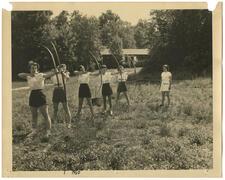
Summer Camping in the United States
The Jewish summer camp movement shaped ethnic-American identity and Jewish childhood throughout the twentieth and into the twenty-first century. A means to fight anti-Semitism by showcasing patriotism and developing the camper’s physical fitness, it was also a safe space to explore, question and craft religious traditions and rituals, novel ideas about girlhood, and the possibilities of womanhood.
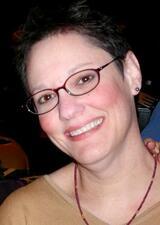
Pamela Sussman Paternoster
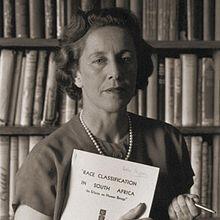
Helen Suzman
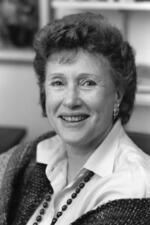
Amy Swerdlow
Amy Swerdlow (1923-2012), child of a Communist household in the Bronx, shared her parents’ dedication to making a better world but developed her own political agenda. She became a leader of the global women’s peace movement, a pioneer in the field of women’s history, and a professor of history and women’s studies at Sarah Lawrence College in Yonkers, New York.
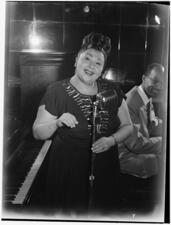
Sylvia Blagman Syms
Sylvia Blagman Syms was a gifted jazz singer who earned praise from Billie Holliday, Frank Sinatra, and Duke Ellington. In 1949, she was discovered by Mae West, who became a significant teacher and influence on Syms’s intimate storytelling performing style. Sym’s went on to record fifteen major albums and tour the United States and World before dying of a heart attack.
Marie Syrkin
Marie Syrkin is best known as a polemicist for the State of Israel, whose keen arguments appeared in a wide range of publications for a period of almost seventy years. Her life touched almost every significant aspect of Jewish life in America and Europe in the twentieth century.


